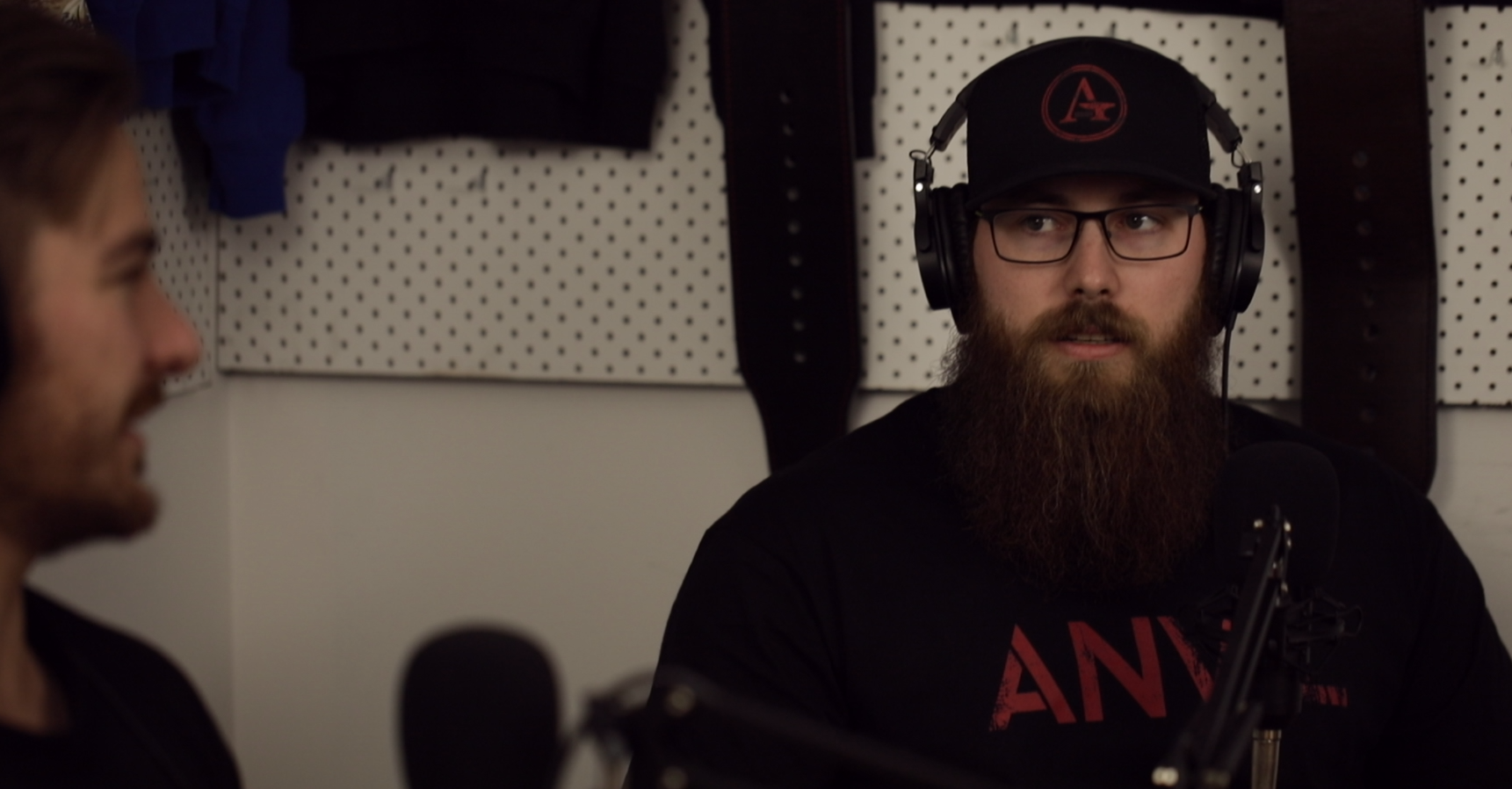DVA Mental Health Model Update

An Anvil Opinion Article by Dr. Kevin Kraushaar, Introduction by Dan Hunt
Introduction
Dr. Kevin Kraushaar is a trauma specialist who works with veterans with service histories ranging from the Second World War to modern day conflicts. He is passionate about mental health, and using his education and years of experience to improve the quality of life for those affected by their traumatic experiences.
The diversity of Dr. Kraushaar’s clients means he has witnessed first-hand the vast array of components that may negatively impact mental health. Using his experience, he’s able to provide insights into issues of which many people may not be aware, due to the ‘hush-hush’ stigma surrounding open discussion of mental health concerns and proactive awareness. At Anvil T&D, we value that information, and so we’re excited to share Dr Kraushaar’s knowledge on his behalf through an article that he’s recently written for us on the latest DVA Mental Health Model Update.
The current DVA mental health support model is argued by many to be too reactionary, whereas it needs to be proactive. When a serving or ex-military member is struggling, the first indication of the system’s success is whether or not that person decides to begin the process which the current support network offers. The issue with that is the negative outcomes associated with an individual choosing not to take the support offered, which is a common enough case. The most reported on and known possible outcome from this is suicide, which continues to prevail despite efforts, in concerning frequency. Amidst the tragic suicides that continue to happen, are the many cases of self-destructive behaviours being done by those who are doing their best to self manage issues that are beyond their ability to do so.
As of October 1st, DVA has introduced an altered approach to giving veterans mental health support. Dr Kevin Kraushaar, a trauma specialist with years of experience working with veterans and DVA’s procedures, has written an article giving his take on the new support model. It’s his second article that we at Anvil T&D are posting, and it offers an explanation of the new treatment system and explores whether or not DVA has implemented an improvement or another obstacle.
An Update On the New DVA Allied Health 12 session “Treatment Cycle” PART I
Is this an improvement on the current system, or simply about cutting DVA costs to fund the surplus? Will an extensive outcomes-based program evaluation of this Australia-Wide policy shift prove it’s about GP’s bringing streamlined efficiencies to veterans MH, and NOT about the money.


The DVA Flyer
Above is a copy of the two page flyer sent to most allied health professionals. This flyer was provided to psychologists, mental health support providers, and veterans (both gold card and white cardholders, TPI cardholders; everyone).
The new DVA Allied Health cycle proposes that it should be mandatory for veterans (white or gold cardholders) to visit their GP and get a report from an Allied Health professional (for example a psychologist) in order to extend mental health support for another 12 sessions (which would work out to be another three months of support; if these are weekly sessions). This is in line with what other civilian Medicare patients must do in order to (annually) extend their mental health services, or Mental Health treatment plans. This mandatory re-visit is required for ALL Allied Health Professionals - except for physiotherapists and exercise physiology services - the decision for these allied brethren exemptions remains unexplained and unclear.
Is this New (Australia Wide) Policy a hindrance or a help?
It sounds so logical; YES, of course, GP’s are the answer to veteran’s mental health issues, and veterans high suicide rates. So how could this Australia-Wide NEW “Treatment Cycle” policy possibly not succeed, nor be a hindrance? Take 11/11/19 (Remembrance Day) for example; many veterans are triggered by the TV, newspapers, books, and stories in the news media. Take Brisbane’s (10/11/19) Sunday Courier Mail pages of War stories; a WWII coast-watchers story of Commander Eric Feldt, and their survival, evading capture and atrocities if found or caught. It included the fuzzy-wuzzy PNG heroes too. Just like Anzac Day, these “lest we forget,” moments trigger many veterans. A veteran is now required to go to their GP and ask for another 12 sessions, however the last thing many veterans want to do is tell someone (likely with no military experience) how the Remembrance Day news-media triggered you. A GP between a veteran and their trauma specialist has become another speed bump or road block, which wasn’t there pre-Oct 1st, 2019. This could potentially lead to the veteran not wanting to get treatment, due to feelings they aren’t comfortable discussing with yet another health professional, who probably doesn’t have the same context or history with them that their trauma specialist does.
The NEW steps required for ongoing treatment
Pre-Oct 1st 2019, DVA veterans got a GP referral (D904) to an allied health professional and with yearly, or GP treatment maintenance reviews reports of triggers, treatment updates went ahead as needed. Treatment decisions were made between the Veteran in consultation with the Psychologist.
- After Oct 1st, (1) every veteran now has a GP between them and their allied health professional; now it’s the GP who makes ALL their mental health treatment decisions. https://www.dva.gov.au/about-dva/overview/organisational-chart
- (2) The veteran sees the psychologist weekly, so how is the GP supposed to understand their complex PTSD
- (3) Or does the veteran re-tell their PTSD (WWII coast-watchers) trigger story again, which they hate doing
- (4) If they do tell their story again to a GP, and ask nicely for them to continue the 12 weekly sessions referral “Treatment Cycle.”
- (5) It’s only for another 12 sessions, which they will eventually have to go back to the GP and ask for another 12 sessions again, and again, justifying their need for ongoing treatment.
Streamline and Efficiency
So why aren’t 12 sessions enough? Well, that’s a fair question. Veterans are being squeezed like Medicare mental health patients. In the Medicare mental health world, Psychologists are supposed to work miracles in 10 sessions (per year) for complex mental health issues. There are currently some high profile questions in the media about veteran suicide. These types of DVA deficit decisions, in my view, are going to impact veterans, and push many into more brief hospitalisations (potentially due to suicide attempts, or more likely, substance abuse as a coping mechanism). After these hospitalisations, they will be back to asking a GP for another 12 sessions every 6 weeks (if seen twice weekly, after a stay in hospital). I’ve been saying for some years the Medicare bureaucrats want to take over DVA and “streamline” Veteran mental health like all mental health; “only Veterans get 12 sessions instead of Medicare’s 10 sessions, to work miracles.” But this new DVA “Treatment Cycle” policy is far more streamlined and efficient if GP’s decide what’s best for Veterans. How do we know that this policy’s streamlining and efficiency questions are actually helpful to the person in need of treatment, and it’s NOT just about the money? Well, we have an exhaustive outcomes-based program evaluation being implemented with this new Australia-Wide policy.
The following is taken from a recently released news article discussing the evaluation:
Assessment and outcomes-based program evaluation of a major DVA (Australia-Wide) policy shift; 12 session “Treatment Cycle.”
What could possibly go wrong, with DVA’s NEW 2019 - 2020 streamline and efficiency “Treatment Cycle” policy approach?
-
Liz Cosson is the new DVA broom and CEO
(May 2018: see DVA organisational chart again https://www.dva.gov.au/about-dva/overview/organisational-chart ) - DVA’s extensive bureaucracy has just announced; across multi-university health professionals; Australia-Wide, an area pilot program evaluation outcome studies across all states and territories.
- This multi-university federally funded pilot study will include extensive ongoing interviews of veterans, and an emerging pilot program evaluation and outcomes-based assessments of individual veterans, veterans’ groups, spouses and partners, veterans’ hospitals, all veterans allied health professionals including Psychologists and Psychiatrists, and of course many thousands of GP’s.
- The purpose will be to assess the implementation and impact of this NEW DVA 12 session “Treatment Cycle,” program across the whole of Australia.
- A preliminary report of this 8-year study will be delivered to all stakeholders and made public on October 1st, 2020; (That’s the one year anniversary of this DVA Australian-Wide 12 session “Treatment Cycle” roll out)
Apologies to the reader: I will provide an update on the new DVA Allied Health treatment cycle (part II) Titled: DVA’s policy changes in veteran’s Mental Health; “What could possibly go wrong; an outcomes-based program evaluation and roll out.” Once I have more information on the success (or failure) of this process.
About Us
Anvil Training and Development is a group of Australian veterans who care about the physical and mental health of veterans and emergency service workers. We’re passionate about ongoing education and working with others to implement positive change.
Instagram: Anvil Training & Development - @anvil.td
Facebook: Anvil Training & Development - @anvil.td
www.anviltd.com
(Article Edited, Proof Read, and Fact-Checked by Charlotte Officer)
VES Mental Health Resources: https://anviltd.com/pages/ves-australian-mental-health-resources









Leave a comment